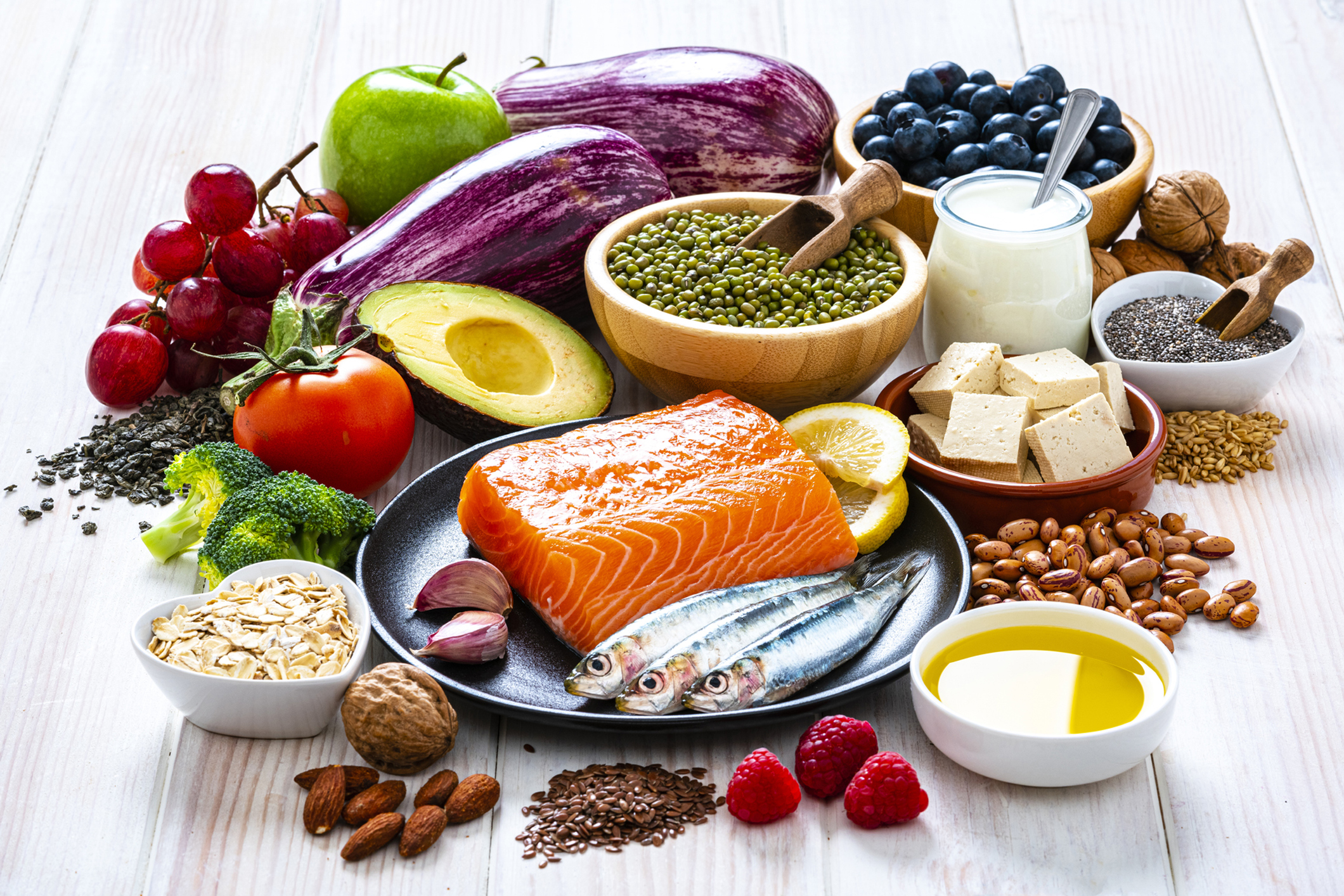Looking for the best diet for weight loss, heart health, preventing or managing diabetes—or just healthy eating in general? And one that will be easy to follow—and safe? What about the best plant-based diet? Or the best commercial diet program? Every year, U.S. News & World Report ranks popular diets, from the Cookie Diet to the Biggest Loser Diet, by such criteria to “cut through the clutter of claims.”
For the 2022 report, released earlier this year, 40 diets in total were evaluated by a panel of experts in nutrition, weight management, diabetes and heart disease, and food psychology. The experts looked at the latest medical literature, government reports, and other sources to assess the diets’ nutritional completeness, effectiveness, ease of use, and potential risks. They also determined whether claims made for the diets were valid or not.
The top five “Best Diets Overall” are:
- The Mediterranean Diet—which is rich in vegetables, fruits, fish, and olive oil and limits red meat, saturated fat, and sugar—was deemed nutritionally sound, diverse in foods and flavors, and flexible, plus it’s been linked to a lower risk of chronic disease. The diet also includes nuts and legumes, with moderate amounts of yogurt, poultry, eggs, and cheese. A little red wine can be consumed (though you shouldn’t start drinking in hopes of getting health benefits). Note that there is no one specific “Mediterranean Diet”—rather, the term reflects a way of eating that is traditional in the diverse countries around the Mediterranean Sea.
- The DASH Diet—which limits sodium to 1,500 to 2,300 milligrams a day—was developed to lower blood pressure (hence its name, which stands for Dietary Approaches to Stop Hypertension). Studies have found it can do just that—and more. The DASH Diet emphasizes vegetables and fruits, low-fat dairy foods, whole grains, and lean meats, which collectively supply calcium, potassium, fiber, protein, and other nutrients and substances that help lower blood pressure. As a 2021 review of studies noted, the diet can also decrease the risk of cardiac events, stroke, diabetes, and obesity.
- The Flexitarian Diet—which is mostly plant-based but also leaves room for a little meat on occasion—is for anyone who wants to be flexible in their approach to vegetarianism. It encourages adding non-meat proteins to your diet, including beans, peas, and eggs, along with vegetables and fruits, whole grains, and some dairy. Diets that emphasize plant foods have been linked to a reduced risk of heart disease, cancer, and diabetes, as well as lower body weight. In fact, the Flexitarian Diet was also tied (with Volumetrics and WW) as the #1 Best Weight-Loss Diet as well as the #2 Easiest Diet to Follow because it is, well, flexible in its options and not extreme like other diets.
- The MIND Diet—a blend of the Mediterranean Diet and the DASH Diet—was developed with brain health in mind. It includes daily servings of whole grains and vegetables, nuts most days, beans every other day, poultry and berries twice a week, and fish at least once a week. Olive oil is the predominant cooking and salad oil. The diet frowns upon fried foods and pastries and other sweets. Some preliminary research suggests that the MIND Diet may slow cognitive decline as well as possibly help thwart Parkinson’s disease. The diet is considered nutritious, safe, and sensible, with some science behind it. It also likely confers similar health benefits as the Mediterranean and DASH diets, upon which MIND is based. Though the diet can be filling—so you may eat less on it without having to count calories—it is not a weight-loss diet per se and was ranked #28 for weight loss.
- The Mayo Clinic Diet stresses lifestyle habits (including ample exercise) that help with weight loss, with specific rules in the first phase for adding in healthy habits and scrapping unhealthy ones. After that, some rules can be broken as you focus on healthy eating patterns rather than specific foods or food groups. The goal, as the diet’s website says, is to achieve “weight loss for life” with “No tricks. No gimmicks. No nonsense.” In addition to being ranked the #5 Best Overall Diet for being balanced in nutrients and safe, the Mayo Clinic Diet was also deemed the #1 Best Diet Program.
BOTTOM LINE: If you want to improve your overall eating habits, any of these diets would be a good choice; you can even take parts from each of them to come up with your own modified eating plan based on your primary goals and preferences. What’s most important is to find what works best for you over the long term—a plan you can follow relatively easily and find enjoyable or at least satisfying enough. And, in case you’re wondering which diets ended up in last place in the U.S. News & World Report 2022 rankings, they were the GAPS Diet (a six-stage elimination diet that lacks supporting research and is lots of work and hard to stick with) and the Dukan Diet (which is similarly very restrictive and hard to follow, plus it may fall short in nutrients). For descriptions of all 40 diets evaluated in nine categories, you can read the full report here.





